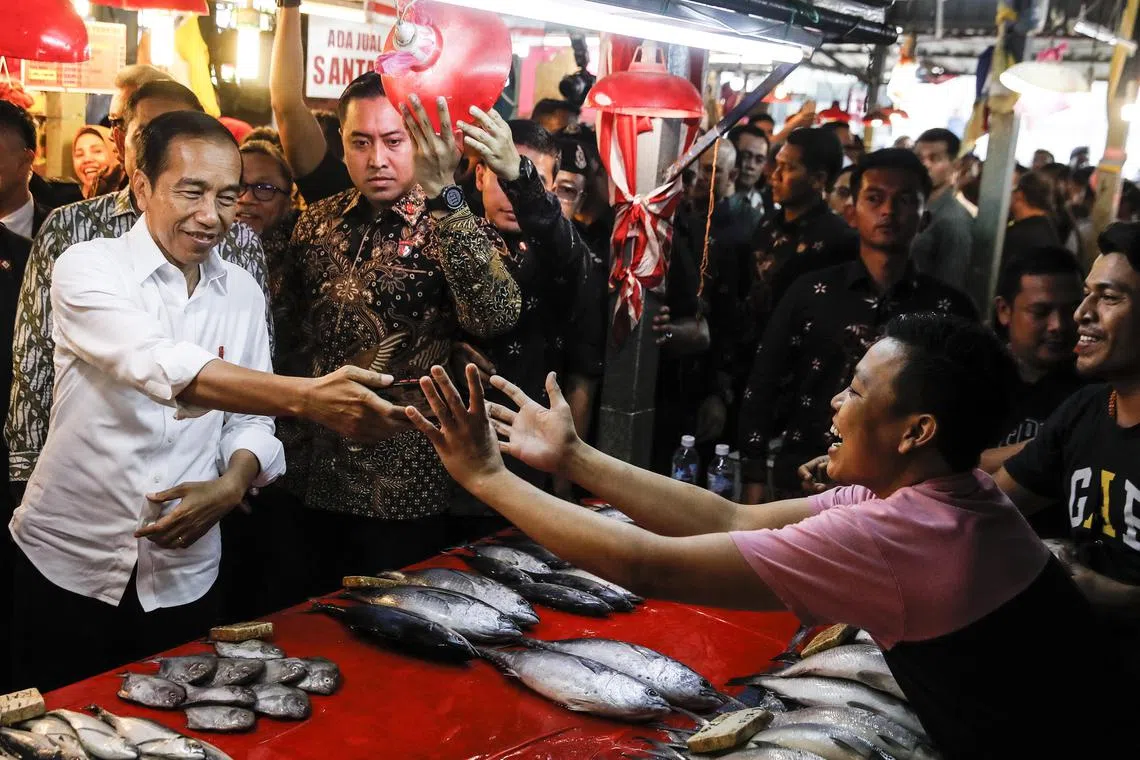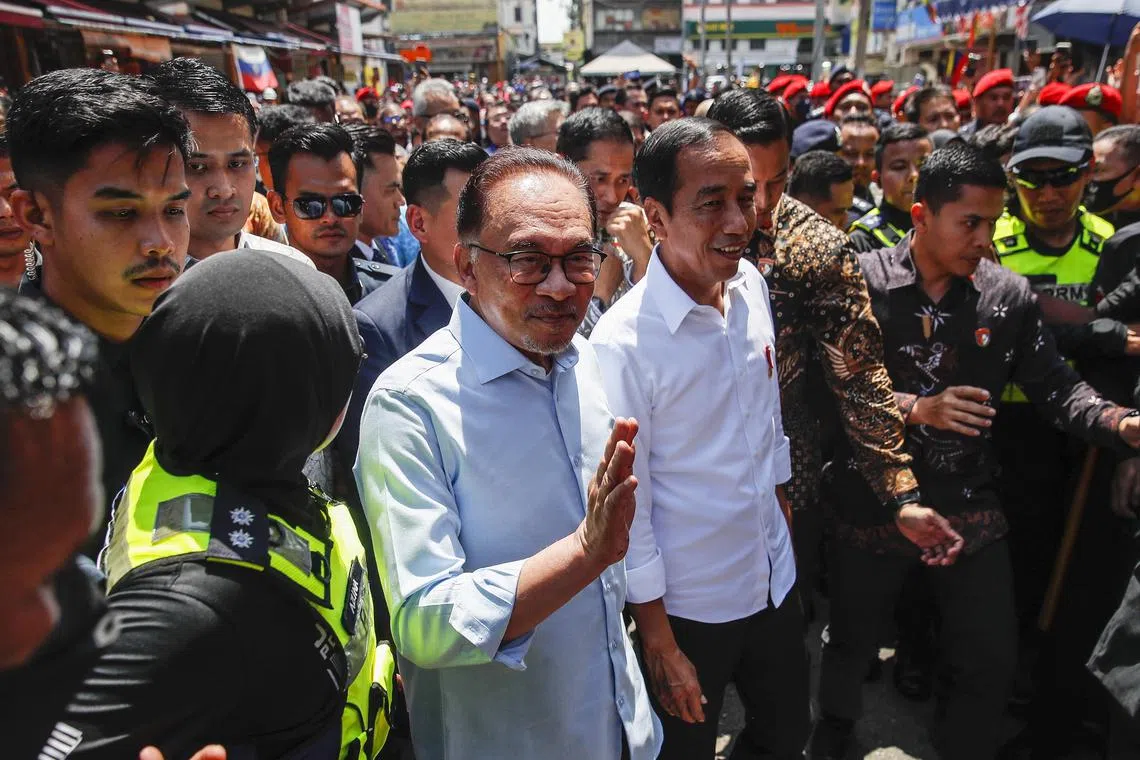Hundreds of Indonesians cheer President Jokowi on his Malaysia visit to firm up ties
Sign up now: Get insights on the biggest stories in Malaysia

Indonesian President Joko Widodo interacts with an Indonesian worker living in Malaysia, at a wet market in Kuala Lumpur.
PHOTO: EPA-EFE
KUALA LUMPUR - Hundreds of Indonesian workers gave President Joko Widodo a rousing welcome during his walkabout in the Malaysian capital on Thursday, part of the Indonesian leader’s working visit to strengthen bilateral ties with Putrajaya.
Mr Widodo, popularly known as Jokowi, visited the country’s biggest wet market at Chow Kit, which has a large Indonesian community. Malaysia is host to an estimated 2.7 million Indonesian workers.
The crowd cheered the arrival of Mr Widodo, who was accompanied by Malaysian Prime Minister Anwar Ibrahim. They chanted the President’s name and sang the Indonesian national anthem as they followed him through the narrow lanes lined with stalls selling meat, fish and fruit.
Mr Abi, 35, a poultry stall worker who hails from the Indonesian city of Medan, was thrilled when Mr Widodo took a wefie with him.
“I was waiting for him and he passed in front of my stall and noticed me,” he told The Straits Times.
“I heard Joko was coming, so I came to the market today,” said Ms Soleha, 52, a cleaner from Surabaya city who has been working in Malaysia for 33 years.
“I like him, as he helps people who are struggling, such as poor people and orphans. He gives them assistance such as money and rice,” she added.
Earlier on Thursday, Datuk Seri Anwar said that the visit to Chow Kit was at Mr Widodo’s request.
“I asked where he wanted to go, he said Chow Kit and Kampung Baru... This is the personality of the Indonesian President – besides going to the National Palace and Seri Perdana (Prime Minister’s official residence), his choice is to go where the ordinary people are in Kuala Lumpur,” he said at a joint news conference.
Kampung Baru is one of the oldest Malay enclaves in the city.
Mr Widodo’s two-day working visit to Malaysia ended on Thursday.
The President is accompanied by First Lady Iriana Joko Widodo, his Cabinet ministers and senior officials of the Indonesian government.

Malaysian Prime Minister Anwar Ibrahim walks alongside Indonesian President Joko Widodo during their visit to a wet market in Kuala Lumpur.
PHOTO: EPA-EFE
“The visit is very significant in the effort of both sides to strengthen further the longstanding and close relations between Malaysia and the Republic of Indonesia,” the Malaysian Foreign Ministry said on Wednesday.
Ahead of the walkabout, Mr Widodo held a meeting with Mr Anwar to discuss cooperation and outstanding bilateral issues.
Two longstanding maritime border disputes that had dragged on for 18 years were finally resolved after the two countries signed agreements regarding the southern-most part of the Malacca Strait, as well as the Sulawesi Sea.
Mr Widodo also sought stronger collaboration to fight “discrimination” against palm oil. Indonesia and Malaysia are the world’s top two producers of the commodity.
“We need to strengthen this collaboration. We don’t want commodities produced by Malaysia and Indonesia to be discriminated against in other countries,” he said at the news conference.
The European Union in 2023 passed a law banning imports of commodities linked to deforestation, a move which could hurt palm oil. The two countries sent a joint mission to Brussels last week to discuss the matter.
The President also said the two countries have agreed to set up a framework to protect migrant workers’ rights, an issue which has been a sore point, with some Malaysian employers having been accused of mistreating migrant workers.
The two leaders also boosted bilateral cooperation on trade, investment and the halal sector, with the signing of agreements.
Mr Widodo attended an hour-long reception with the Malaysian King, Sultan Abdullah Ahmad Shah, at the National Palace on Thursday evening.
In 2022, Indonesia was Malaysia’s sixth-largest trading partner and second largest among the Asean member states, behind Singapore, with total trade of RM130.14 billion (S$38.1 billion). This was an increase of 36.5 per cent from the RM95.31 billion of total trade transacted in 2021.



